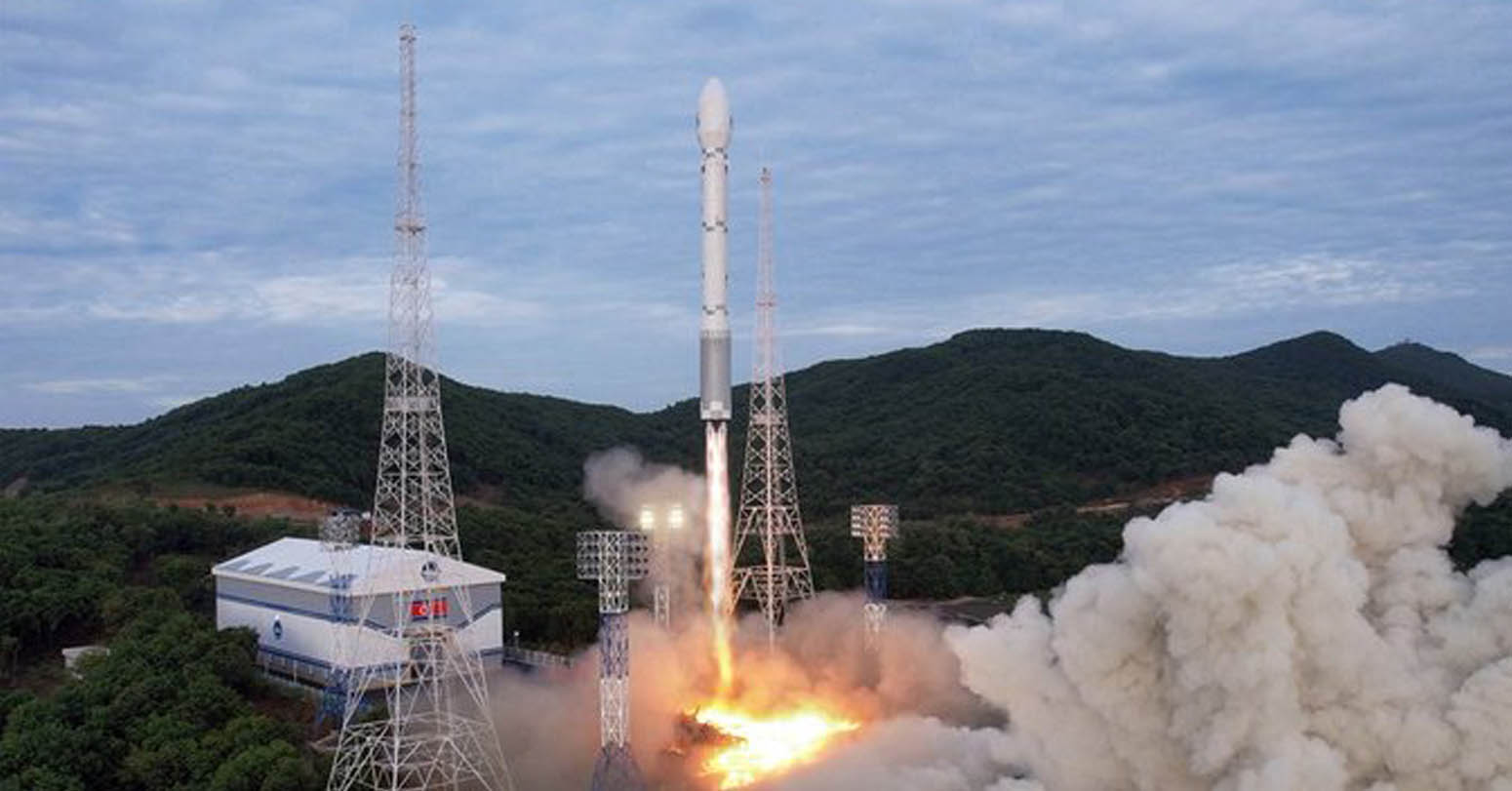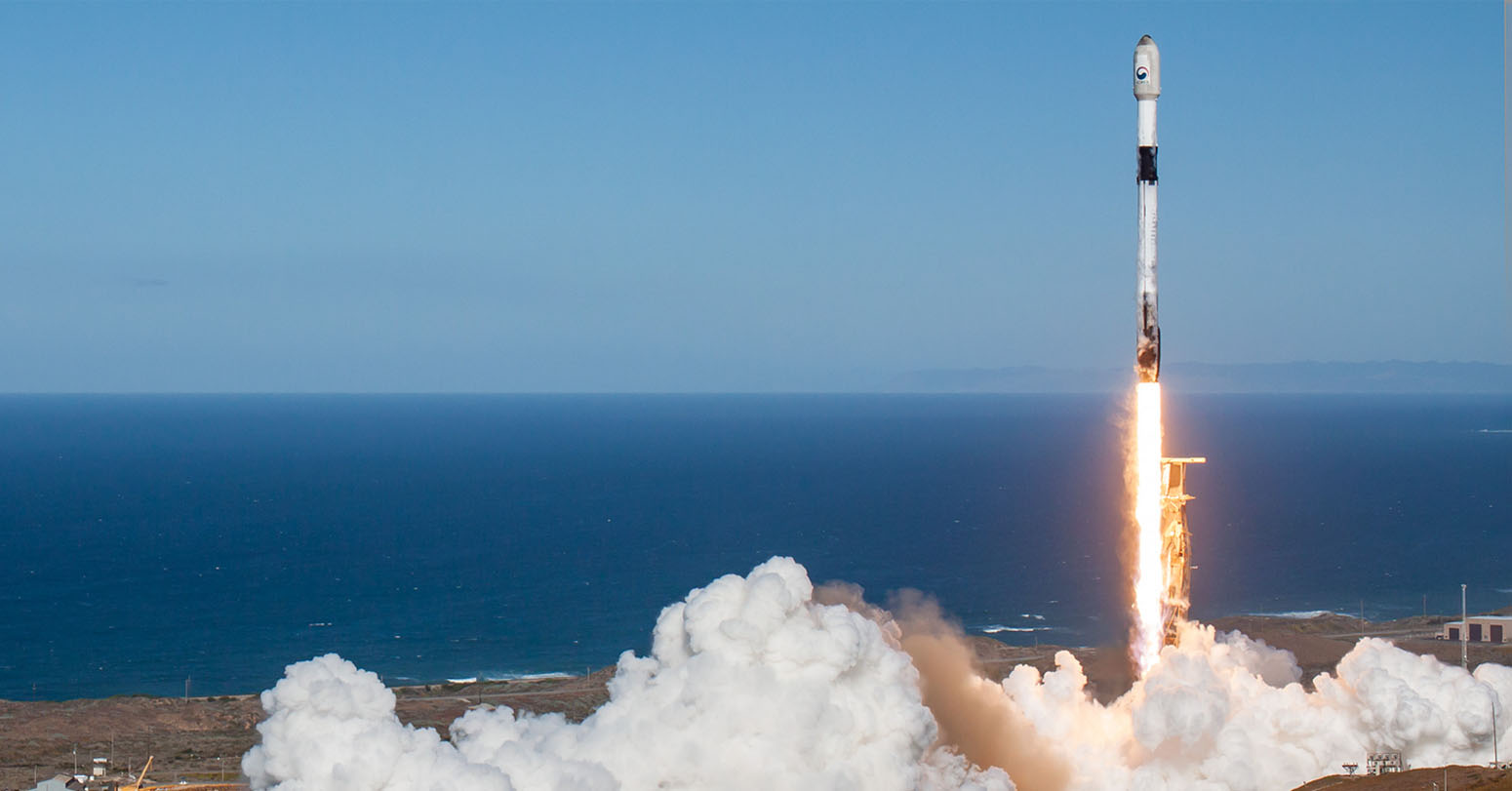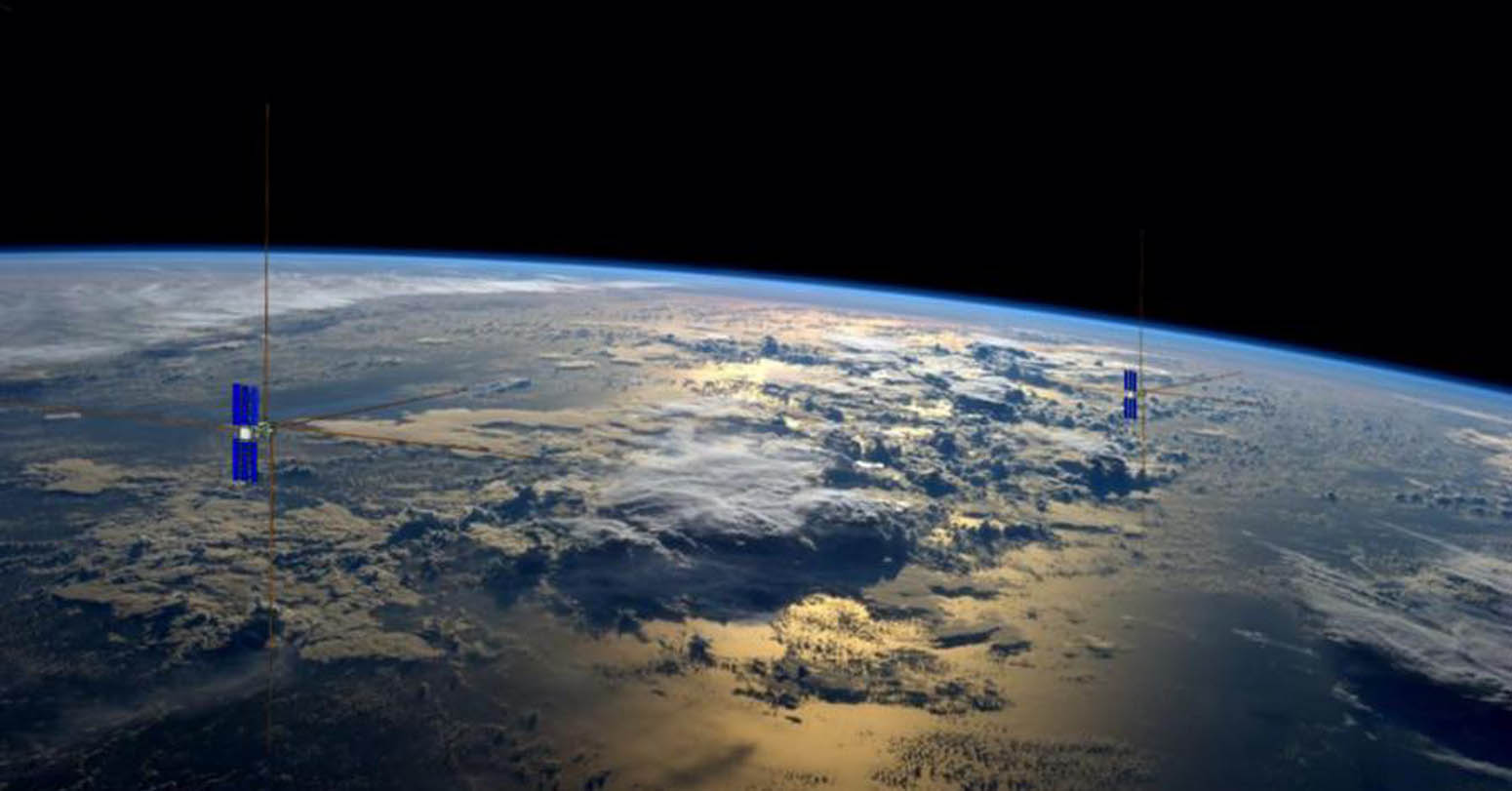
A SpaceX rocket on Friday launched South Korea's first military spy satellite, intensifying a space race on the peninsula after Pyongyang launched its own first military eye in the sky last week.
Seoul's reconnaissance satellite, carried by one of Elon Musk's SpaceX Falcon 9 rockets, lifted off from the Vandenberg US Space Force Base in California at 10:19 am local time (GMT 1819 GMT).
The rocket was emblazoned with the word "KOREA."
The Yohnap news agency reported that the satellite reached orbit soon after and that communication was successfully established with ground control.
Citing South Korea's defense ministry, Yonhap reported that "the satellite was placed in orbit approximately four minutes after launch at 10:19 am, and succeeded in communicating with a ground station at 11:37 am, which means it is operating normally."
Reaching orbit would mean that South Korea has acquired its first domestically built spy satellite to monitor nuclear-armed North Korea.
Seoul plans to launch four additional spy satellites by the end of 2025 to bolster its reconnaissance capacity over the North.
Set to orbit between 400 and 600 kilometers (250 to 370 miles) above Earth, Seoul's satellite is capable of detecting an object as small as 30 centimeters (11.8 inches), according to Yonhap.
"Considering resolution and its capacity for Earth observation... our satellite technology ranks in the top five globally," the defense ministry official said, as quoted by Yonhap.
The launch comes less than two weeks after Pyongyang had successfully put its own spy satellite into orbit.
"Until now, South Korea has relied heavily on US-run spy satellites" when it comes to monitoring the North, Choi Gi-il, professor of military studies at Sangji University, told AFP.
While the South has "succeeded in the launch of a military communications satellite, it has taken much longer for a reconnaissance satellite due to higher technological hurdles," he said.
Following the North's successful launch of its own spy satellite, Choi said, "the South Korean government needs to demonstrate it can also pull this off."
Experts have said putting a working reconnaissance satellite into orbit would improve North Korea's intelligence-gathering capabilities, particularly over South Korea, and provide crucial data in any military conflict.
Since last week's launch, the North has claimed its new eye in the sky has already provided images of major US and South Korean military sites -- as well as photos of the Italian capital Rome.
It has not yet disclosed any of the satellite imagery it claims to possess.
The North's launch of "Malligyong-1" was Pyongyang's third attempt at putting such a satellite in orbit, after two failures in May and August.
Seoul has said the North received technical help from Moscow, in return for supplying weapons for use in Russia's war with Ukraine.
-AFP



















Comprehensive Data Protection Law Critically
Gender Differences In Mental Healthcare
Messi Wins Best FIFA Men’s
Erosion of Democracy
Fly Dubai Catches Fire in
“Complexities of the South Asian